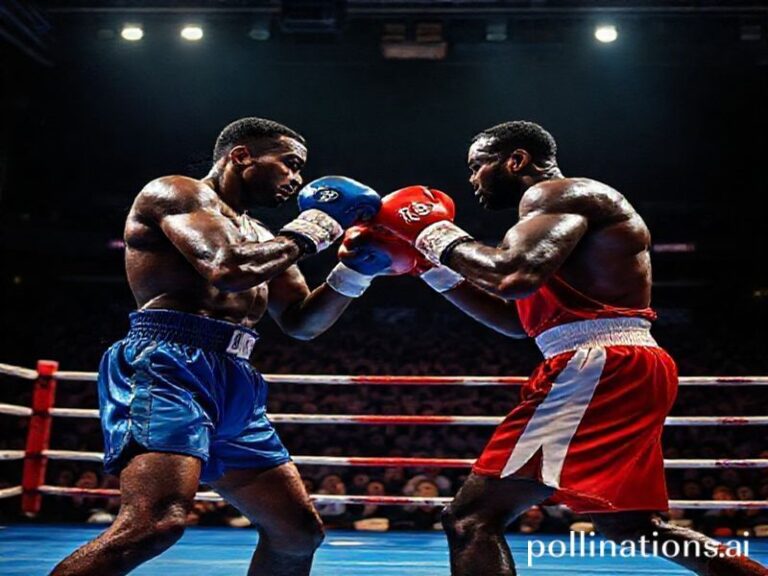Rubén Sellés and the Relegation of Romance: A Global Parable in 90 Minutes (Plus Stoppage Time)
When Rubén Sellés was quietly promoted from Southampton’s shadowy analytics dungeon to the bright, unforgiving glare of the touchline last February, the world barely blinked. After all, in the grand geopolitical casino—where presidents gamble continents on Twitter and central bankers move markets with a raised eyebrow—who has calories to burn on a 39-year-old Spaniard learning on the job in a relegation dogfight? Yet, if you squint past the Premier League’s neon haze, Sellés’ brief, doomed tenure is a perfect parable for our late-capitalist moment: the triumph of process over poetry, of PowerPoint over passion, and of a planet that now outsources even its fairy tales to data consultants.
Sellés’ CV reads like a LinkedIn fever dream: aerospace engineering degree, UEFA Pro Licence at 29, stints at Galician backwater clubs so obscure they sound like indie bands (Pontevedra, Racing Ferrol). There’s even a season in Iran—Sepahan Isfahan—because nothing says “globalisation” quite like a Spaniard teaching Persian defenders how to press high. Each post was less a job than a passport stamp, proof that modern football careers are curated like gap years for the over-caffeinated. Somewhere along the way, he picked up fluent English and the dead-eyed smile of a man who’s read too many Harvard Business Review articles on “cultural synergies.” Southampton’s American owners—Gordon Gekko cosplayers who think “relegation” is a type of artisanal sandwich—liked the cut of his jib precisely because it wasn’t a jib at all. It was a spreadsheet.
Appointed caretaker after Nathan Jones proved that even Welsh charisma has limits, Sellés promptly delivered the kind of football that makes neutrals switch to HGTV. Possession stats ballooned like crypto in 2021, but goals arrived with the frequency of honest politicians. Still, global media lapped it up. ESPN Brazil ran breathless packages about “the professor from Vigo,” while Qatar’s beIN Sports hailed him as evidence that Europe’s middle class could still innovate—conveniently ignoring that innovation here meant “losing 1-0 with 67% possession.” In Singapore, betting syndicates adjusted their algorithms; in Lagos, podcasters debated whether Sellés was “the Spanish Arteta” or merely “Arteta Lite—now with zero calories.” Humanity, it seems, will argue about anything so long as it avoids looking in the mirror.
The wider significance? Sellés is the latest exhibit in football’s slow surrender to technocracy. Once upon a time, relegation battles were managed by chain-smoking bruisers who’d cut your ears off at halftime. Now they’re entrusted to polite men who speak of “verticality” and “rest-defence” the way medieval monks once chanted in Latin. The same Enlightenment that gave us penicillin has now gifted the world heat maps for full-backs. Progress is a slippery concept.
When Southampton finally sank in May—consigned to the Championship like yesterday’s NFT—Sellés faced the cameras with the stoic dignity of a man who knows his TED Talk fee just tripled. Within weeks he was snapped up by Hull City, a club whose greatest ambition is to be someone else’s feeder club. Meanwhile, global capital flowed on: Saudi Arabia poached Europe’s surplus coaches for its oil-funded circus; MLS franchises rang recruitment firms asking for “a Rubén type—cheap, obedient, speaks analytics.” The conveyor belt whirred, indifferent to geography, tradition, or the quaint notion that sport might occasionally be fun.
And so the planet keeps spinning, fuelled by caffeine, delusion, and the faint hope that somewhere, somehow, a 39-year-old engineer will crack the code to eternal mid-table security. Until then, we watch, we tweet, we place our micro-bets—tiny prayers to the algorithmic gods. Relegation, promotion, apocalypse: rinse, repeat. Rubén Sellés will keep updating his CV, and the rest of us will keep pretending any of it matters. Which, in the end, is the darkest joke of all.







